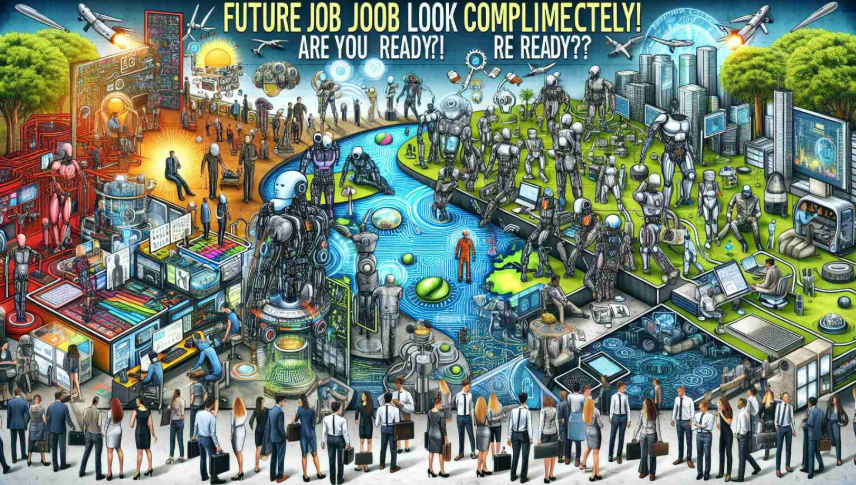
The world of work is about to undergo a dramatic transformation, with shifts in technology, demographics, and economic realities set to reshape the global job market. According to the Future of Jobs Report 2025, the employment landscape will look drastically different by the time we reach 2030, driven by the rise of artificial intelligence (AI), big data, cybersecurity, and sustainability efforts.
As industries continue to evolve, there will be a growing demand for advanced skills in AI, data analytics, and cybersecurity. The report forecasts that 86% of employers are already aware of the need for these critical skills in their workforce. AI, along with other technological innovations in data processing, will redefine job roles across multiple sectors. This shift is expected to affect nearly every industry, from manufacturing to healthcare, creating new job opportunities while also leading to the displacement of others.
One of the most significant impacts will be from automation and robotics, which is expected to influence around 58% of jobs. Many routine and manual tasks will be automated, freeing up human workers to focus on more complex, creative, and interpersonal functions. This raises essential questions about the future role of human labor in an increasingly tech-driven economy. As machines handle repetitive tasks, there will be an increasing emphasis on creativity, emotional intelligence, and collaboration—skills that machines cannot easily replicate.
Furthermore, advancements in energy systems and environmental technology are set to create a surge in green jobs, driven by the urgent need to address climate change. Roles like renewable energy engineers, environmental scientists, and sustainability consultants will become more in demand as industries pivot toward sustainable practices. These shifts will not only drive the global economy but also ensure that the transition to clean technologies brings equitable job opportunities for all, particularly in developing nations.
The report also highlights the significant demographic trends that will influence the future job market. With an aging global population, there will be a growing need for healthcare professionals, from nurses to geriatric specialists. Similarly, the rise of younger generations will drive a demand for educators, particularly in STEM fields. By 2030, it is estimated that 170 million new jobs will be created worldwide, although this will come at the cost of approximately 92 million jobs being displaced due to automation and technological advancements.
Despite these challenges, the overall trend points to an evolving workforce that will require a balance of resilience, leadership, and adaptability. Employers will need to invest in reskilling and upskilling their teams, providing continuous learning opportunities to help workers stay competitive in this rapidly changing landscape. For workers, the future will demand more than just technical expertise; the ability to think critically, solve problems creatively, and adapt to new technologies will be essential for success.
As industries become more reliant on technology, the need for inclusive access to education and training programs becomes even more critical. The report warns that without adequate investments in skill development, disparities in job readiness could exacerbate social inequalities and hinder economic mobility. Ensuring that all workers have access to the tools and knowledge they need to succeed in the digital economy will be key to fostering a fair and equitable job market.
The cultural implications of these shifts cannot be ignored either. As automation takes over more routine tasks, the nature of work itself will evolve. The traditional 9-to-5 office job may become less common, replaced by more flexible, remote, or gig-based opportunities. This will require organizations to rethink how they measure productivity and success, placing greater value on output rather than the number of hours worked.
Moreover, the increased focus on sustainability and environmental responsibility will reshape the job market in profound ways. Green jobs are expected to surge in response to climate change concerns, creating new economic opportunities while driving environmental progress. At the same time, companies will need to ensure that these new roles are accessible to a diverse range of individuals, particularly those in marginalized communities.
In summary, while the future of work presents challenges, it also offers vast opportunities for innovation, growth, and societal progress. By 2030, the global job market will be transformed, with millions of new roles emerging in AI, data science, renewable energy, and more. But these changes require careful planning, strategic investments in education, and a commitment to creating an inclusive, sustainable workforce. The time to prepare for this transformation is now.







